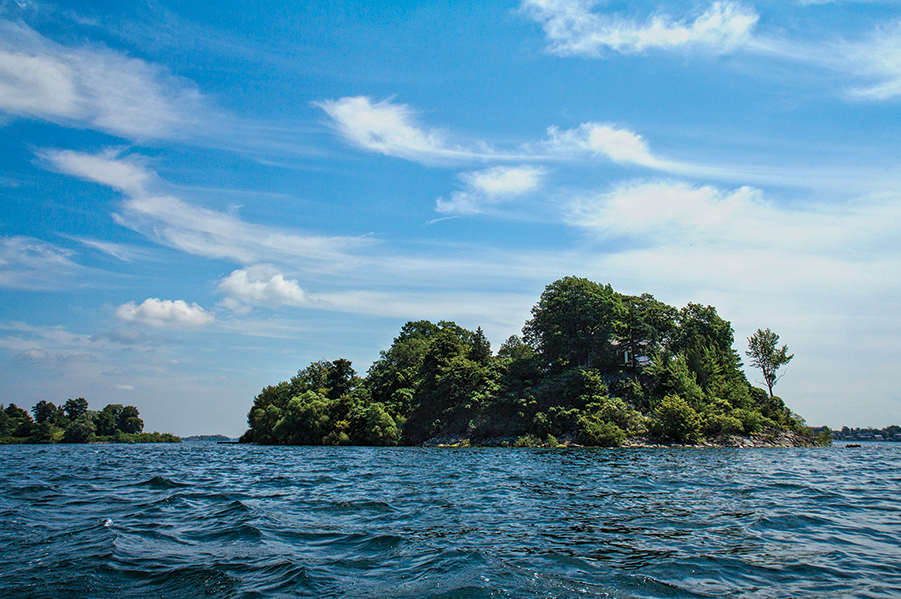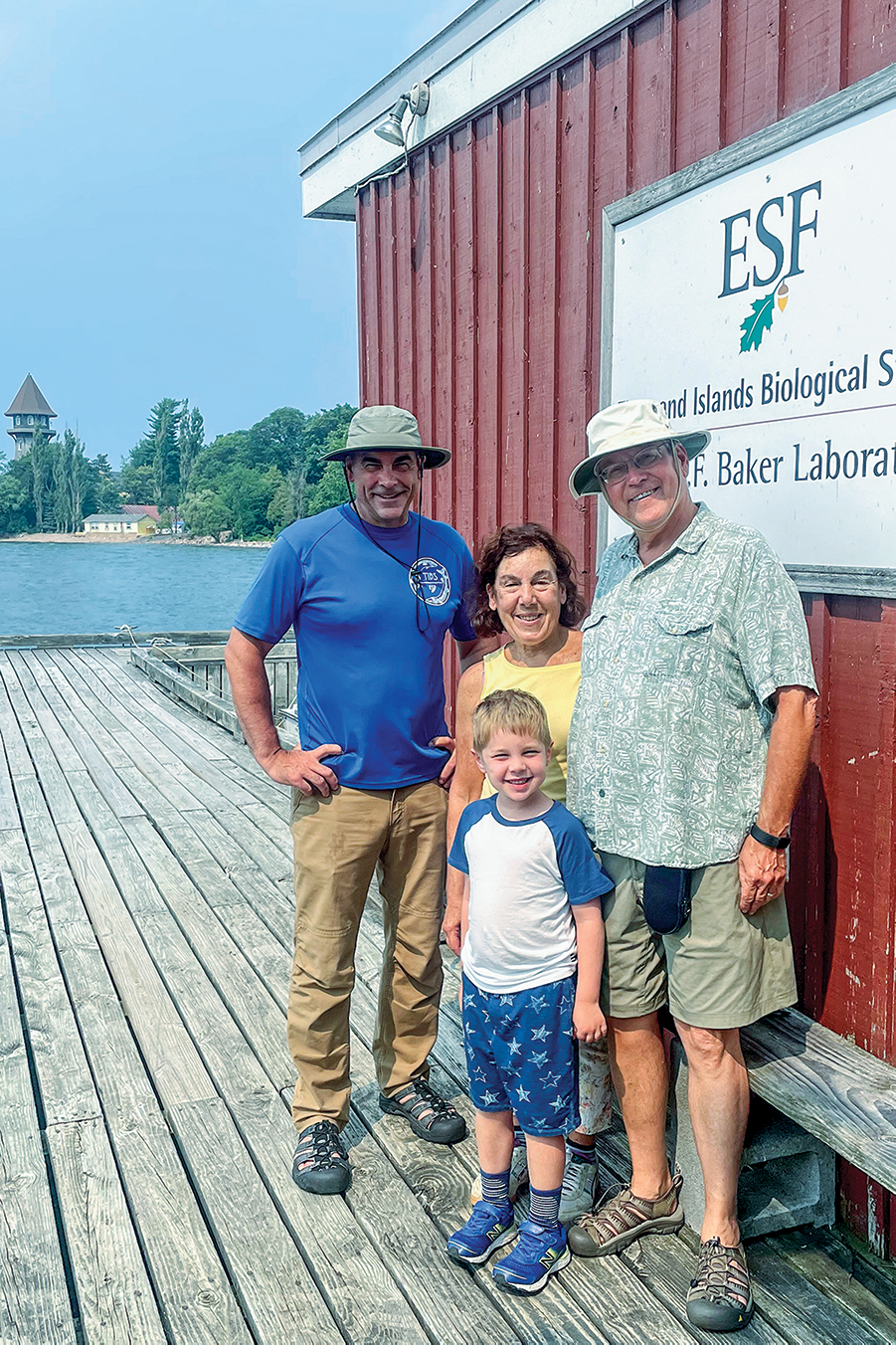Having seen firsthand the valuable research done at ESF’s Thousand Islands Biological Station (TIBS), Nels and Deborah Magnuson decided they wanted to support the work being done there. They have endowed a first-of-its-kind scholarship to benefit students studying at the station.
TIBS is the College’s island field station in the St. Lawrence River near Clayton, New York. For more than 40 years, ESF scientists and students have been part of the river community with long-term research, management, restoration and educational programs dedicated to building and applying conservation knowledge for the betterment of the river’s ecological health and fisheries.
The new scholarship will “support a deserving ESF undergraduate or graduate student to participate in the aquatic research program at TIBS in perpetuity,” said Dr. John Farrell ’91, TIBS director. “The students will learn how to conduct science and monitoring in the field and in our labs that will benefit them through professional training as well as contribute to conservation and management of fisheries, habitats, and biological diversity of the river.”
The Magnusons, who are actively involved in conservation efforts in the region through the Thousand Islands Land Trust, learned about TIBS when Farrell was involved in the restoration of the Blind Bay marsh in Hammond, where they have a summer home.
“We have long supported a sustainable St. Lawrence River habitat and decided to support the important work being done at TIBS by endowing a student internship,” Nels Magnuson wrote in an email. “We hope the internship provides experiences furthering students’ interest in careers supporting a sustainable environment.”
“The Magnusons joined our new Friends of TIBS program in 2021 to support and engage more with the research station,” said Brandy Neveldine ’09, an ESF major gift officer. “This extraordinary gift will impact so many deserving students and help ensure the work done by Dr. Farrell and his team continues to benefit the region into the future.”
The Magnusons visited the station in the summer of 2021 accompanied by their 6-year-old grandson, who has a budding interest in science.
“John gave us a tour, introduced us to several students who discussed their work, and put together an exhibit with a number of river critters for our grandson,” said Nels. They were also able to watch a group of students collect samples from the river.
Having lived in central and northern New York for many years, the couple has “seen the positive impact of ESF,” Nels Magnuson said. TIBS isn’t the first ESF property they have visited. They have also been to Heiberg Forest in Tully and the Ranger School in Wanakena.
Find out more about TIBS and how you can become a TIBS Friend by visiting www.esf.edu/tibs/support-tibs.htm


Dr. John Farrell ’91, left, with Deborah and Nels Magnuson and their grandson, Logan, at the Thousand Island Biological Station.


